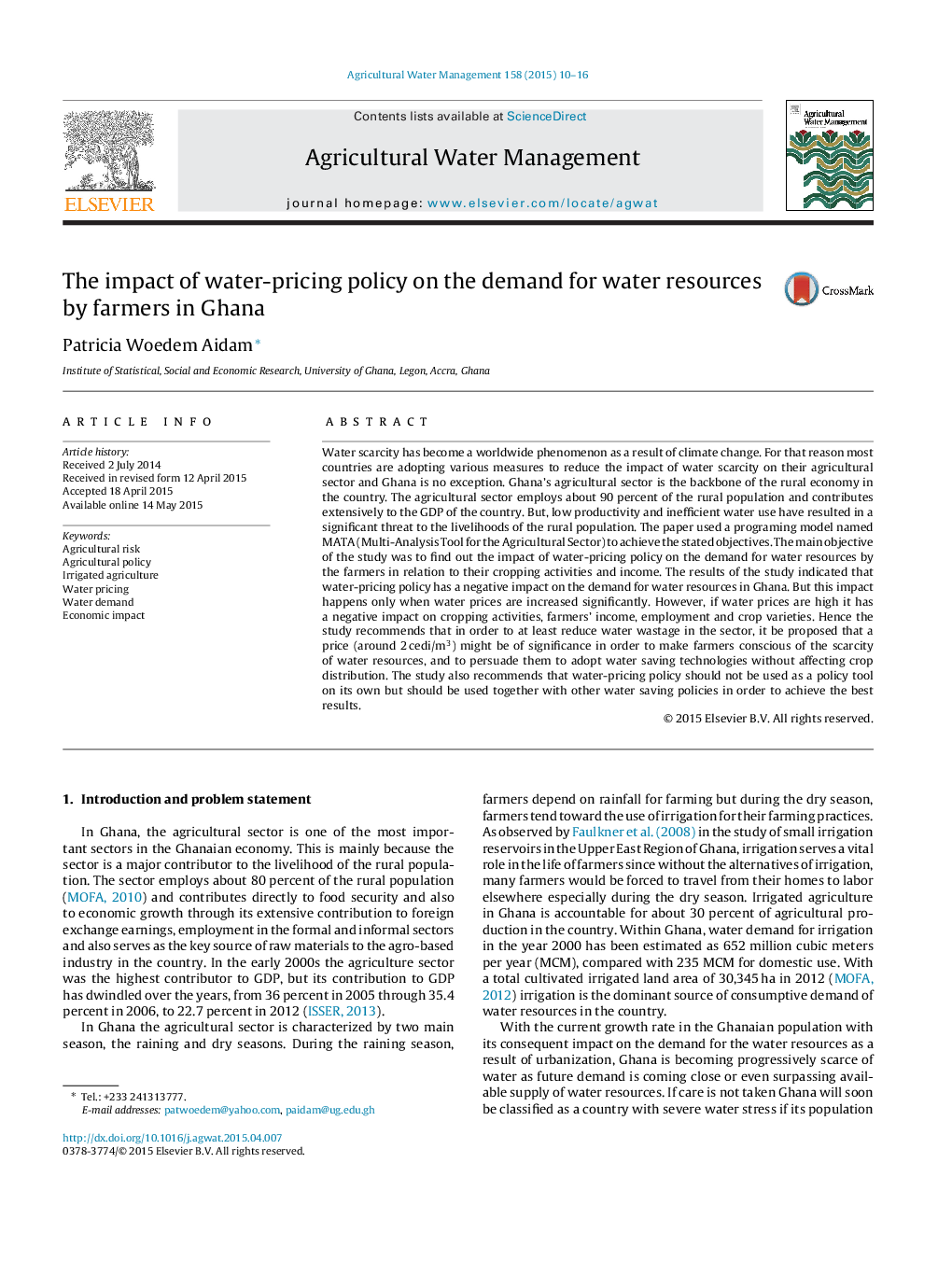| کد مقاله | کد نشریه | سال انتشار | مقاله انگلیسی | نسخه تمام متن |
|---|---|---|---|---|
| 4478416 | 1622921 | 2015 | 7 صفحه PDF | دانلود رایگان |
• Increasing agricultural water prices decreases the demand for water by farmers.
• Increasing agricultural water prices decreases the income of farmers.
• Increasing agricultural water prices decreases cropping activities of farmers.
• Increasing agricultural water prices decreases employment in the agricultural sector.
• Increasing agricultural water prices has a positive effect on the environment.
Water scarcity has become a worldwide phenomenon as a result of climate change. For that reason most countries are adopting various measures to reduce the impact of water scarcity on their agricultural sector and Ghana is no exception. Ghana's agricultural sector is the backbone of the rural economy in the country. The agricultural sector employs about 90 percent of the rural population and contributes extensively to the GDP of the country. But, low productivity and inefficient water use have resulted in a significant threat to the livelihoods of the rural population. The paper used a programing model named MATA (Multi-Analysis Tool for the Agricultural Sector) to achieve the stated objectives. The main objective of the study was to find out the impact of water-pricing policy on the demand for water resources by the farmers in relation to their cropping activities and income. The results of the study indicated that water-pricing policy has a negative impact on the demand for water resources in Ghana. But this impact happens only when water prices are increased significantly. However, if water prices are high it has a negative impact on cropping activities, farmers’ income, employment and crop varieties. Hence the study recommends that in order to at least reduce water wastage in the sector, it be proposed that a price (around 2 cedi/m3) might be of significance in order to make farmers conscious of the scarcity of water resources, and to persuade them to adopt water saving technologies without affecting crop distribution. The study also recommends that water-pricing policy should not be used as a policy tool on its own but should be used together with other water saving policies in order to achieve the best results.
Journal: Agricultural Water Management - Volume 158, August 2015, Pages 10–16
